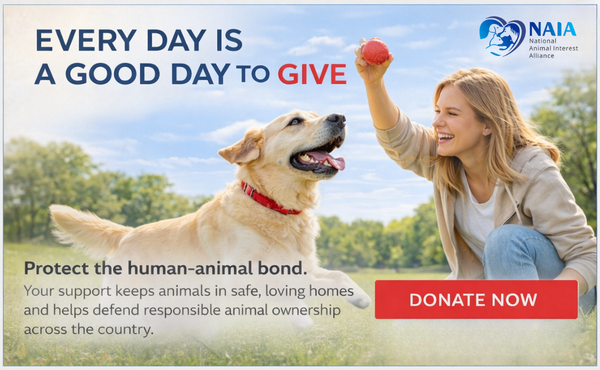
Animal Careers
Policy statement: Animal Careers
NAIA recognizes that animal welfare depends on the skills and commitment of the hundreds of thousands of people who work in animal research, agriculture, medicine, conservation, and sports and entertainment and the support industries that serve them. These dedicated workers at all levels provide top-notch care for animals using science, compassion, and traditional techniques honed over hundreds of years by experienced owners and caretakers.
Many animal caretakers receive on-the-job training while others attend community colleges, four-year colleges, or advanced education in animal science, veterinary medicine, wildlife conservation, or animal behavior. Entry level jobs involving animal care can lead to further educational or business opportunities, and those who start as caretakers may advance to careers as biologists, veterinary technicians, veterinarians, kennel owners, animal trainers, etc.
Animal care and service workers train, feed, water, groom, bathe, and exercise animals and clean, disinfect, and repair their cages. They also play with the animals, provide companionship, and observe behavioral changes that could indicate illness or injury. Boarding kennels, pet stores, animal shelters, veterinary hospitals and clinics, stables, laboratories, aquariums and natural aquatic habitats, and zoological parks all house animals and employ animal care and service workers.
People who love animals get satisfaction from working with and helping them in spite of the possibility that some tasks may be unpleasant, physically and emotionally demanding, and sometimes dangerous. Most animal caretakers and service workers have to clean animal cages and lift, hold, or restrain animals, risking exposure to kicks, bites or scratches. Their work often involves kneeling, crawling, repeated bending, and lifting heavy supplies like bales of hay or bags of feed. They may work outdoors in all kinds of weather, travel to sports competitions or entertainment venues, and have irregular hours when animals are sick, injured, or on the road.
Those who develop an affinity for working with animals usually include some species or other in their daily lives as well. They may compete in dog obedience competitions or horse shows; hike with a companion dog or go trail riding; keep small animals as pets; volunteer at an animal shelter, rescue organization, or nature center; lead a 4-H animal club; or join an animal-oriented club or organization. Through their jobs and their avocations, they promote animal welfare and keep the human-animal bond alive for future generations.
Be sure to see these additional NAIA policy statements
Pet Ownership / Dogs / Pets and the Community / Guardianship / Animals in Entertainment
Animal husbandry / Animal Careers / Agriculture / Research / Wildlife / Mandatory Spay/Neuter Legislation
Stay Connected with The NAIA: Sign Up for The Weekly Roundup
Join our FREE newsletter and community of animal advocates and receive The NAIA Weekly Roundup straight to your inbox. Stay in the loop with the latest news, events, and ways you can make a difference in the lives of animals. Sign up now to stay informed to create positive change!
Sign Up


